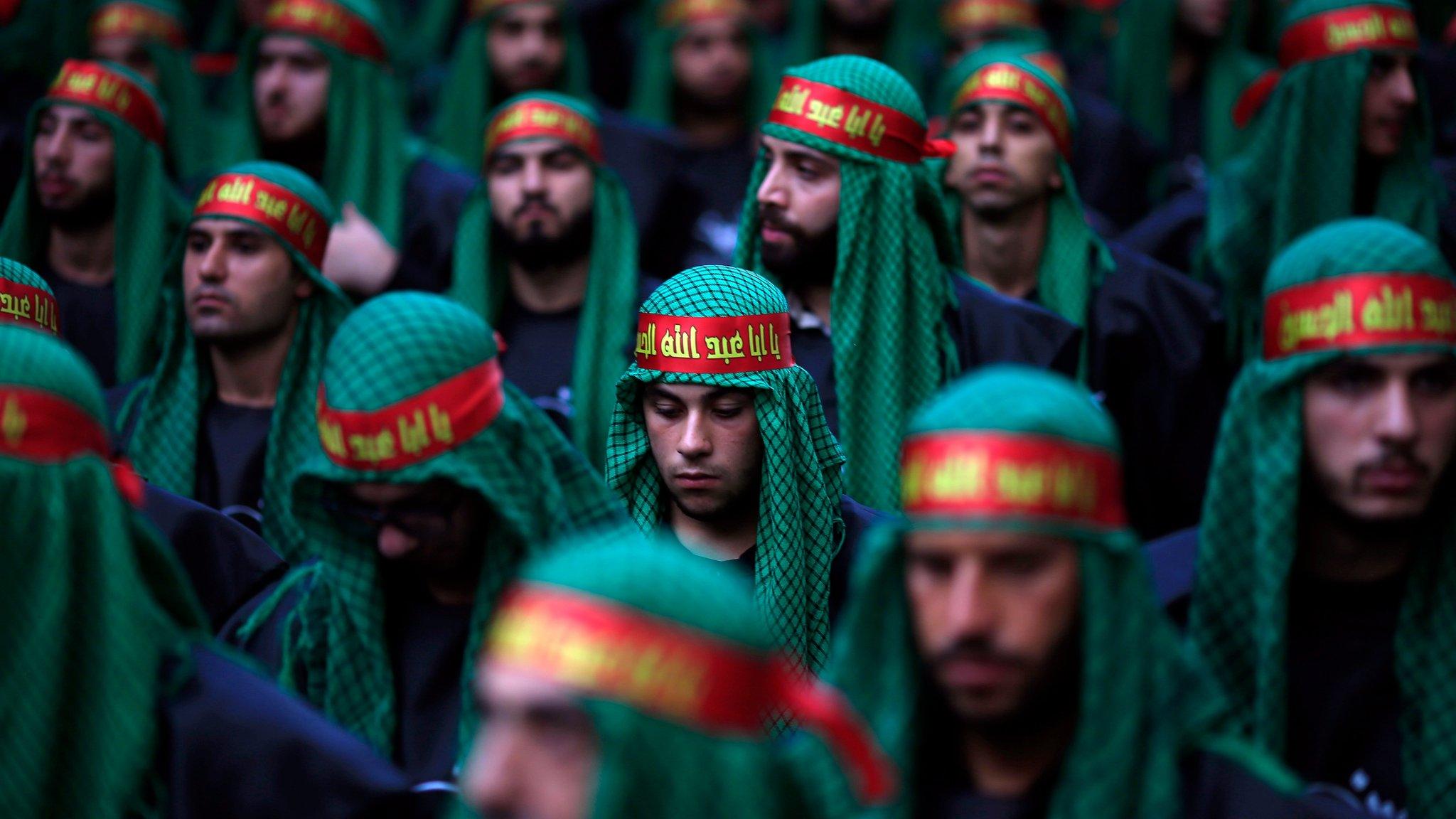Desert storm diary - Kuwait remembers
- Published
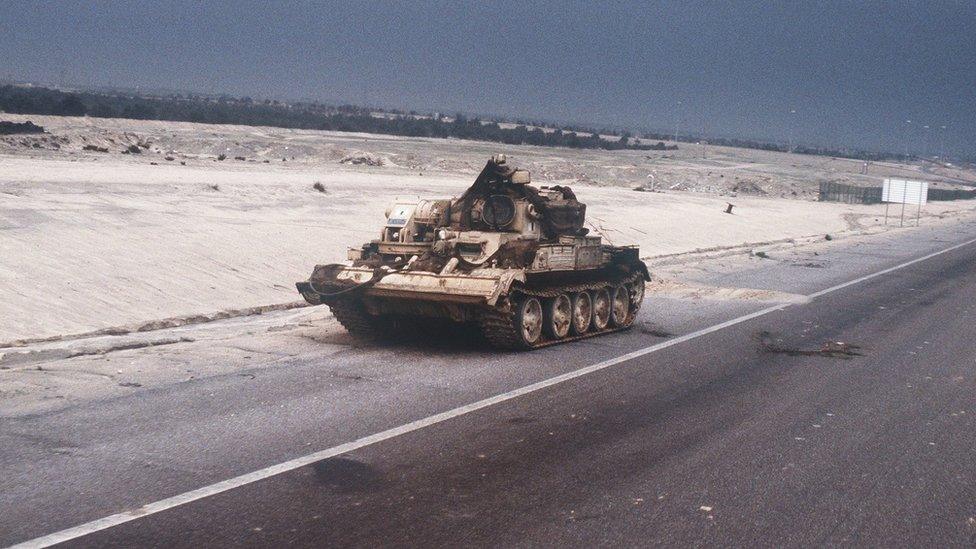
Iraqi tanks lay abandoned on the road into Kuwait City
On the morning of 17 January 1991, exactly 25 years ago, Kuwaitis woke up to the news that the war to liberate their country, after five months of Iraqi occupation, had begun.
BBC Security Correspondent Frank Gardner interviewed Khaled Al-Sabah, who stayed on in Kuwait throughout the occupation, helping the resistance under an assumed name, about what he remembers of the day the US-led Operation Desert Storm began.
Khaled: It was 02:35 in the morning of 17 January. I was in my bedroom trying to listen to the BBC World Service.
Although the Iraqis were doing their best to jam the airwaves, luckily I was able to listen to the breaking news that the Coalition had just started their air campaign and the war for liberation of Kuwait had begun. I was so overwhelmed with euphoria, joy and excitement.
I had been living with relatives in a safe house on the outskirts of Kuwait City because it was getting too dangerous for us to remain in my uncle's house in town, which was only a few hundred metres from the Iraqi embassy.
I could hardly wait to break the good news to my uncle and aunt, but I didn't want to wake them up in the early hours.
So I wrote my uncle Ahmad a note and slipped it under his closed bedroom door, making sure to keep part of it sticking out, so I could retrieve it quickly and swallow it in case some Iraqi soldiers, who took over the school next door as barracks, were to break in.
After that I rushed downstairs to check on the safe room, which I had been preparing for weeks in the case of a chemical war attack, and made sure nothing was missing.

Oil well fires in the Kuwaiti desert spread smoke across the country
Gardner: Were you expecting the war to begin?
Khaled: After the UN deadline of 15 January 1991 expired (for Saddam to withdraw his forces from Kuwait), we had no doubt about the coming war for the liberation of Kuwait.
Iraqi forces' morale in occupied Kuwait was at rock bottom by then. The rate of exchange of the Kuwaiti/ Iraqi Dinar, which I was following very closely on the black market, was improving rapidly in favour of the Kuwaiti dinar. To me that was the most objective indicator of the current situation.
Gardner: What were conditions like in Kuwait by then, after more than five months of Iraqi occupation?
Khaled: There were continual random arrests by Iraqi forces and the thefts and break-ins never stopped. There were shortages of medical care and medicine and water had to be rationed.
But the situation in terms of food supply was not as bad as many people outside imagined, and electricity ran as normal.
Gardner: So how did Kuwaitis there react to the news that Operation Desert Storm had begun?
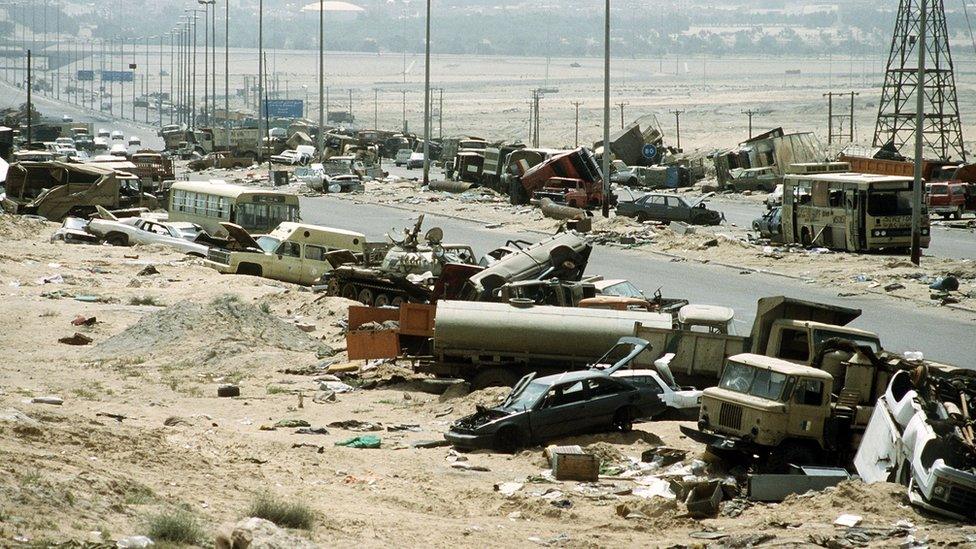
Retreating Iraqi troops were bombed by coalition warplanes
Khaled: To say that Kuwaitis were extremely happy and over the moon, would be an understatement. The boost to our morale was phenomenal, but we still had to be guarded in our expressions and to contain ourselves in the face of the occupier.
Gardner: Operation Desert Storm lasted just 40 days after that, before Saddam's generals surrendered. Twenty-five years on, do Kuwaitis still remember the US-led Coalition's efforts to free their country, or are most now too young?
Khaled: The current population of Kuwait is about 4.1 million, of which 1.2 million are Kuwaitis.
In terms of the demography of Kuwait, about 40% of the population is below the age of 25 years. So you have roughly half a million Kuwaitis who were born after the liberation.
There is no doubt in my mind whatsoever that for the bulk of the Kuwaiti population the sacrifices by the Coalition troops are omnipresent and gratefully acknowledged and remembered.
I myself am a founding member of the Poppy Ball, a UK charity which has raised over the past few years more than £1m ($1.43m) for the Royal British Legion, as well as other Kuwaiti charities who did the same.
But yes, regrettably young Kuwaitis in elementary, middle and secondary schools are not taught nearly enough, if at all, about the horrors of that invasion and occupation.
- Published10 January 2016
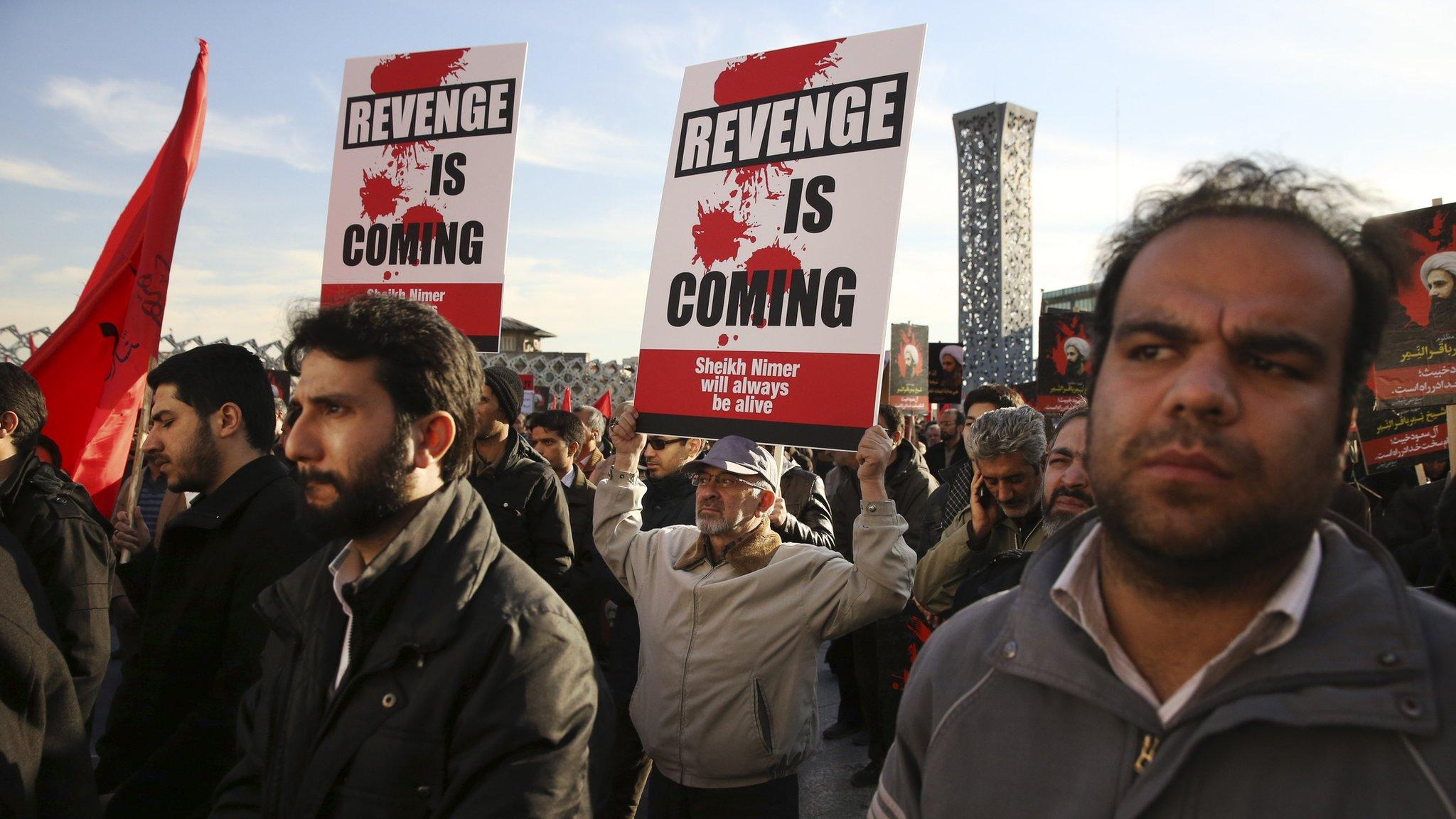
- Published5 January 2016
- Published4 January 2016
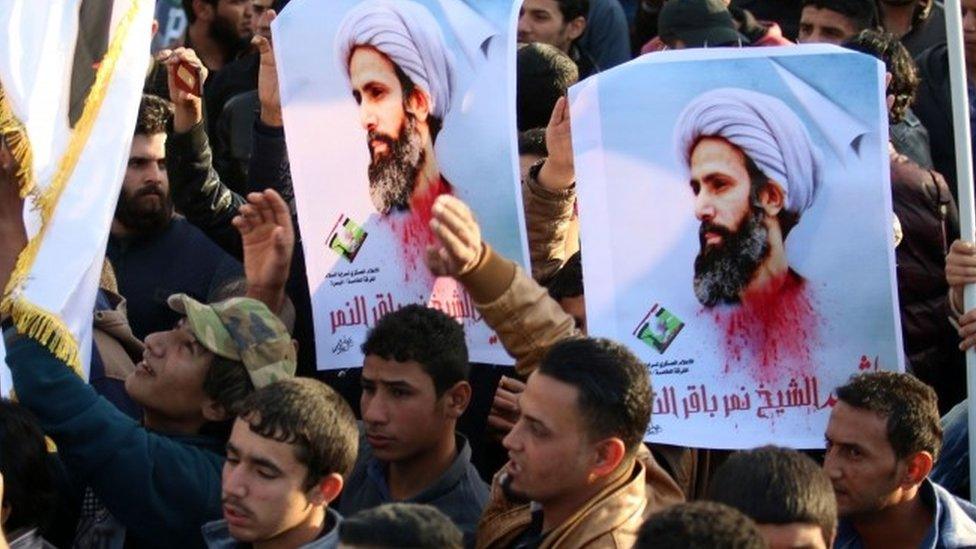
- Published4 January 2016
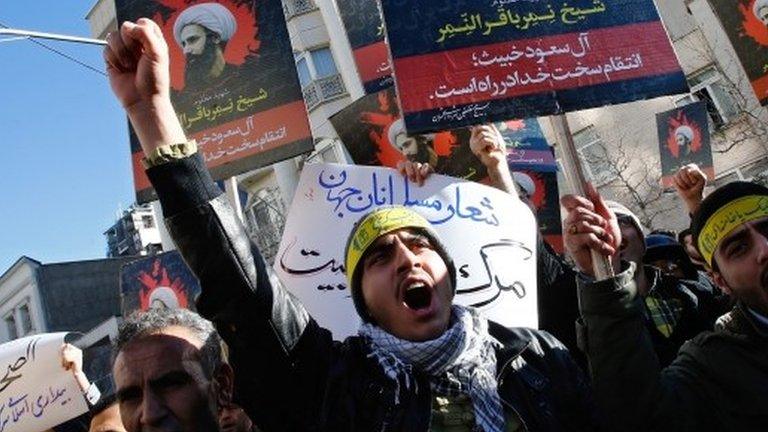
- Published2 January 2016
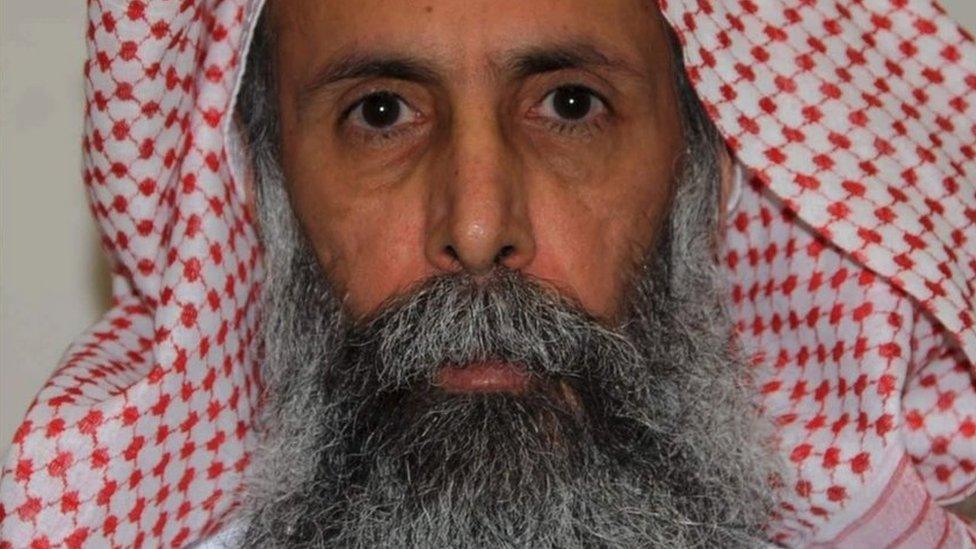
- Published4 January 2016
